They say that every generation rewrites history, but I don’t know if that’s true except inasmuch as every generation finds the favored presuppositions of prior generations lacking and substitutes its own in their place.
Case in point: I was meandering through the Medieval Anglo-Saxon genealogies tonight when I came across a wonderful paper, “Origins of Barbarian History” by Thomas Hodgkin, published in Hermathena* in 1902. In reviewing the same genealogies, he counts back the generations of each Angle and Saxon royal house to Woden (aka the Germanic god Odin), and after some quick math (proposing 3 generations per century) fixes Woden’s position in history thus:
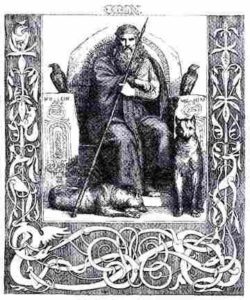
West Saxon line: 200ad
Bernician line: 250ad
Mercian line: 240ad
East Anglian line: 260ad
East Saxon line: 240ad
Hengist and Horsa’s line: 320ad.
Then after noting several very good reasons “to attribute a certain amount of real historical value to all these pedigrees,” he immediately shares two historical assumptions that allow him to keep Woden safely mythical:
- “We may probably assume that when the memory of Cerdic’s ancestors stopped, a divine ancestor was introduced,” and
- “Looking upon the name of Woden at the head of each list as a confession of ignorance as to all the yet earlier links…”
Together they add up to the following: each of these royal houses knew x number of historical names, and when they reached the end they inserted a divine, mythical ancestor to anchor and legitimize the pedigree. The Venerable Bede (pbuh) informs us that every Saxon royal line credits Woden as its wellspring; Hodgkin assures us that there is no historical basis for such an assignment.
His reason for reaching such a conclusion?
Few persons probably in our own day… could readily … furnish an inquirer with the names of eight ancestors….
That these did so, he notes, is
a feat creditable to the men, probably minstrels of the court, by whom it was performed.
But do those assumptions hold water? Do they ring true to what we know of them and of ourselves? I think not, for several reasons.
The first is that to assert this to be the case, we have to believe that seven royal houses, all with completely divergent pedigrees, living in different places and speaking different dialects, placed at the top of those pedigrees the same name**, yet in each case he would have lived within a century of all the others.
In fact, if we propose a missing link or two in Hengist’s genealogy (and such gaps do occur; in fact Bede himself misses Hengist’s grandfather “Witta,” who is named in Nennius) and give the West Saxon line 30 years per generation instead of 35, we can put all seven within about 40 years of each other, surely not too long a period for a virile and powerful king to father sons. That all these lines would accidentally reach mythological levels so close together strikes me as particularly unlikely.
The second is that there is evidence that Woden was not always considered divine. In fact, in the cases of Welsh historians Nennius, who saves Hengist and Horsa’s genealogy, and Asser, who records King Alfred’s, Woden is completely skipped over in the divinity department and it is his something-something grandfather, Geat, “who, as they say, was the son of a god” (Nennius) and “which Geat the pagans long worshipped as a god” (Asser).
Given that Nennius and Asser were both churchmen who should be expected to note – and did note – the pagan deities of their subjects, is it not odd that Woden is so publicly dissed? Why would that be?
I suggest that it is because Woden, though a very powerful king from whom many lines of kings descended, was still considered human at the time the Saxons arrived in Britain in the Fifth Century. And if he’s not divine, there’s no reason to treat him as any more mythical than any other name in those lines which Hodgkin notes have “real historical value.” In a similar sense, that Caesar was deified after his death does not make him less historical; rather it shows that the history he made mattered.
The third, I think, is the no-brainer. To assert that none of us could name eight ancestors is irrelevant, because that’s not our job. I’m sure that any one of us could remember a string of eight items (Presidents, football teams, children, cities, etc.) that we come into contact with every day, as would have been the case for the minstrels of the courts that Hodgkin asserts probably kept these lines.
Rather than being the length they are because that was the limit of memory, I suggest that these lines were only carried back to Woden*** because that was as far as they needed to go to establish the royal pedigree. Woden’s authority was unquestioned; why trace the royal line back to other, less famous names?
Woden was not in the lists because he was a god; he became a god because he was in the lists, a powerful driving force – in song and in tale – behind the mass of Germanity that swallowed Europe whole. In other words, Woden was not a myth, but a man who became one.
* A literature, science, and philosophy periodical from Trinity College in Dublin.
** An argument probably best made by Bill Cooper in After the Flood.
*** When they were only carried back to Him. Both Asser and Nennius go to Geat and beyond.

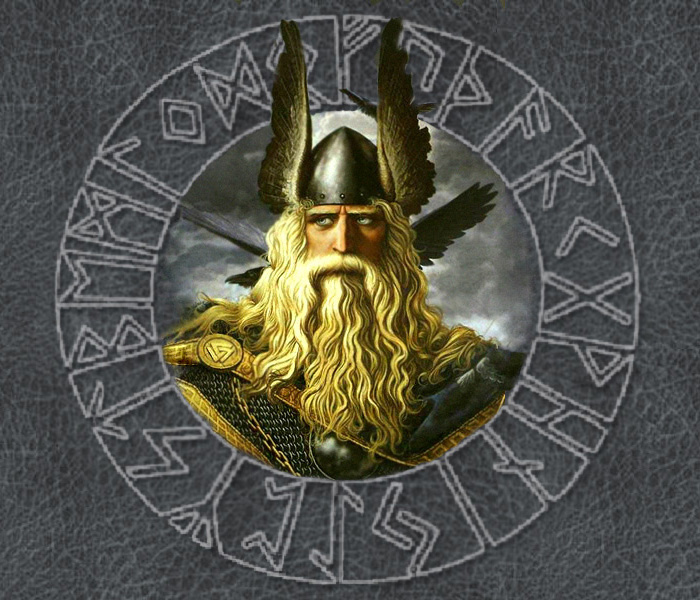

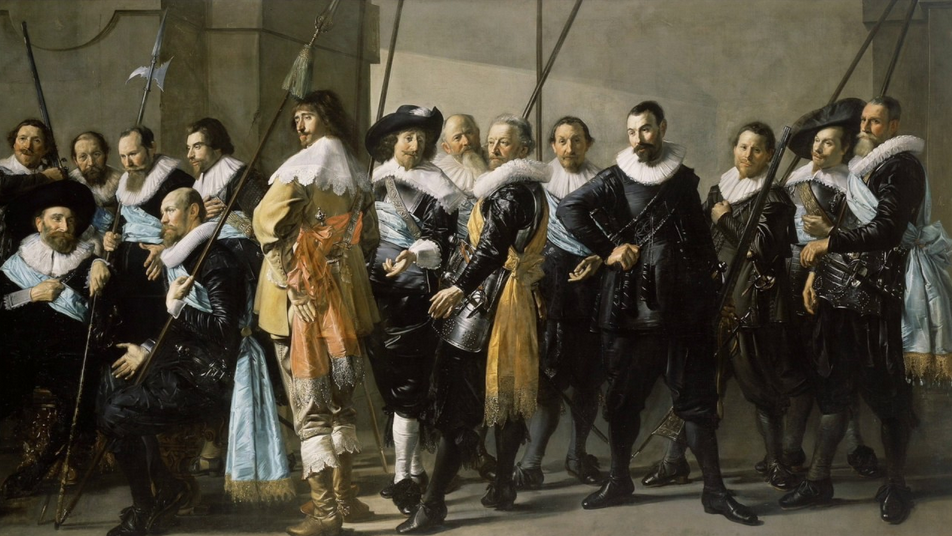
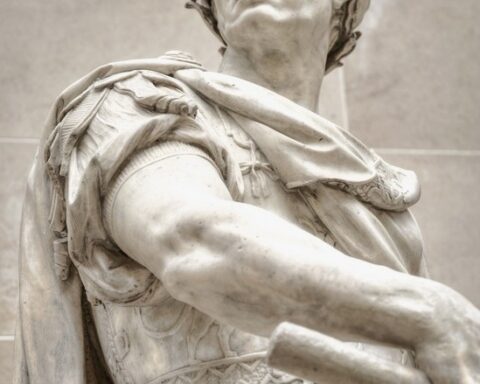

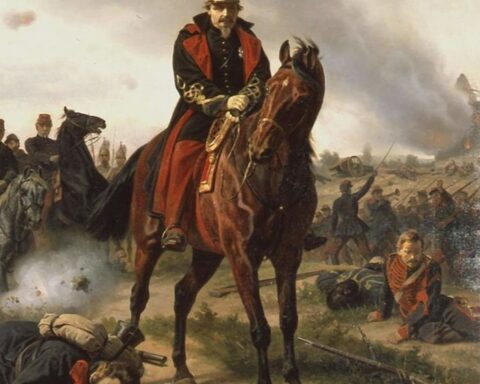
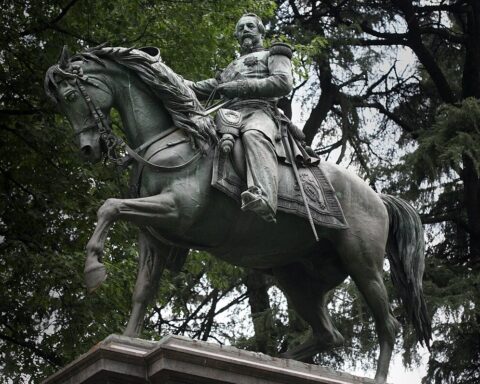

5
“furnish an inquirer with the names of eight ancestors”
Obviously, he never knew genealogists. Or Grandmothers. Or Great-Grandmothers.
Bingo. My grandfather could name off multiple generations in all directions, right up to the point where he thought he found feather Indians hiding in the tree. Then he put the notebooks down and never picked them up again.
Never take up genealogy if you’re afraid of what you might find.
I can name at least 8 ancestors, in line, on two different family tree branches.
3.5
5
I’ve always found it curious that historians assign only 3 generations per 100 years. In my family history, there are persistently five. Even in the 20th century with our falling birth rates, from the birthdays of both sets of my grandparents to the birth of my grandchild is only 85 years.
posted too soon… I was intending to say:
Re the article’s premise, is there a genealogy for Woden out there?
There has always been a sneaking suspicion that a lot of what is handed down as “myth” has a lot more historical basis than we moderns are comfortable with. To believe these ancients may have actually existed and been memorialized destroys one of the foundations of modernity…that we know more and are wiser than days of old. That the opposite may be true is a picture too terrible to view to many a modern intellectual. The horror of laughing at the notions of the ancients…merely to find them correct!
Case in point Hillbilly: remember when astronomers thought of space being filled with”aether”? Well, we’re back there again, only now they’re talking about it as “dark matter” and “dark energy”. Might as well write “here there be dragons” on the margins of astrophysics books.